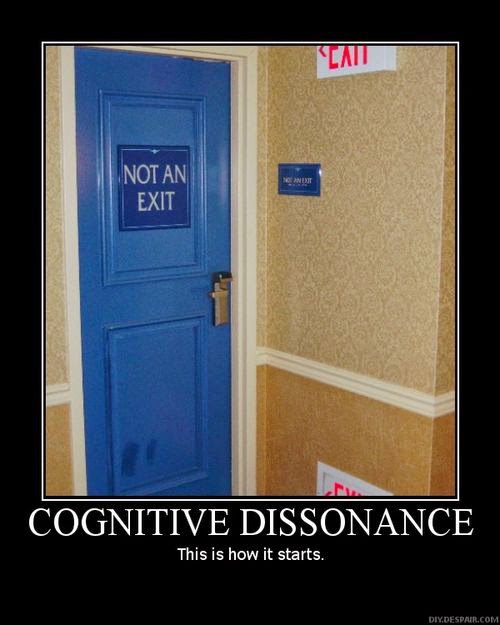 |
| okami.buzznet.com |
Cognitive dissonance refers to a situation involving conflicting attitudes, beliefs or behaviors.
This produces a feeling of discomfort leading to an alteration in one of the attitudes, beliefs or behaviors to reduce the discomfort and restore balance etc.
For example, when people smoke (behavior) and they know that smoking causes cancer (cognition).
Festinger's (1957) cognitive dissonance theory suggests that we have an inner drive to hold all our attitudes and beliefs in harmony and avoid disharmony (or dissonance).
The season finale of COSMOS airs tonight.
Dr. Tyson interviewed Steven Soter on his Internet Star Talk Radio show, who along with Anne Druyan (and Carl), was one of the original writers of COSMOS:
I have a naive hope that with the right information, human beings tend to respond to it and make logical decisions. Even in the fictional Star Trek timeline, it took a while before the humans actually "got it," and started behaving in a civilized manner towards one another (it only took several millennium of ignorance and cruelty, after all).
Like Big Bang/climate change/science denial; like mythologized faked-moon-landing-conspiracies; like fraud creation science versus actual, I have been sadly mistaken. Similar to the debate on evolution at the creation museum between Bill Nye and Ken Ham, it did little more than fill the airwaves and social media posts with something novel to view. In Ham's case, he was literally "preaching to the choir" of the sternly-resistant-to-new-information-congregation. From the link heading the first paragraph:
Leon Festinger (1957) proposed cognitive dissonance theory, which states that a powerful motive to maintain cognitive consistency can give rise to irrational and sometimes maladaptive behavior.
According to Festinger, we hold many cognitions about the world and ourselves; when they clash, a discrepancy is evoked, resulting in a state of tension known as cognitive dissonance. As the experience of dissonance is unpleasant, we are motivated to reduce or eliminate it, and achieve consonance (i.e. agreement).
"Boldly going where no one has gone before" sounds like almost a daily/weekly inoculation against dissonance. You must record the new findings in your captain's log, dismiss what you previously believed, and move on.
Cognitive dissonance inoculates one from taking in new information and forming new modes of thinking from it, the equivalent of placing index fingers in ears to sing-song "la-la" nauseatingly. It's been heartbreaking to see some of the comments on Facebook or Twitter from trolls that have a loud opinion and memorized talking points from bamboozle artists, but no actual experience in science or facts. [Thankfully, to the benefit of my blood pressure] I've learned to read and not engage: dissonance tends toward excited, incoherent, twisted-logic responses. Inevitably when I did engage previously, my goal would be sharing knowledge; their goal is authoritarian compliance to a quite twisted worldview. It's as if the criteria for winning a debate is how loudly one group or another can howl at the moon.
For better or worse (hint: I lean towards better), the 13 disk DVD will go on sale Tuesday. I'll likely buy it to support the show and its advocacy of science.
Just as likely as - despite the evidence before them - some will continue, at self-disillusioned disadvantage, to howl at the moon.
Comments